The Franco-Prussian war of 1870-71
If your ancestors lived in France 150 years ago, their lives have inevitably been impacted by the Franco-Prussian war of 1870-71. It was a short war – it lasted less than a year – but it had many consequences in France and Germany.
Military mobilization in 1870
The war started 150 years ago, on the 19th of July 1870. All the young men who were doing their military service at the time were mobilized.
The fighting started only a few days later in the North-Eastern part of France: mostly in Alsace and Lorraine.
After a few weeks of war, the French government mobilized additional soldiers: all the men under 35 who had already completed their military service and the single men under 40 who were in the National Guard.
However, most of the fighting ended up in French defeats. The most famous is the defeat of Sedan, resulting in the surrender, capture and abdication of the French Emperor Napoleon III. This event resulted in the creation of the Third Republic of France.
Civilian life during the war
However, the war wasn’t over. The fighting went on, and approached Paris. The Siege of Paris started on the 19th of September 1870. At the same time, the fighting continued in many regions, and the French citadels surrendered one after another.
In besieged cities, civilians suffered many restrictions and shortages. As all communications were cut with the outside, many food products like meat started lacking.
The inhabitants of Paris had to eat all the available animals: cats, dogs, horses, rats. Even the animals from the Jardin des Plantes (a botanical garden in Paris) were killed and eaten in fancy restaurants for Christmas Eve dinner in 1870…
Finally, on the 28th of January 1871, Paris surrendered. This led to the end of the war.
Consequences in Alsace-Lorraine
At the end of the war, the Treaty of Frankfurt led to the annexation of the territory of Alsace-Lorraine. This territory was composed of almost all the region of Alsace and a part of the départements of Moselle and Meurthe, which are now the 3 départements of Bas-Rhin, Haut-Rhin and Moselle.
After the Treaty of Frankfurt, the inhabitants of these regions had to “opt” for a citizenship. In other words, they had to make a choice:
- Either stay and become German citizens;
- Or keep French citizenship, and emigrate, leaving their homes behind them.
Around 161,000 people opted for French citizenship, but only around 50,000 of them actually emigrated.
Those who stayed officially became German citizens. The official language of these départements became German.
That’s why, if you have ancestors in this part of France, you will find records in German from 1872 to 1919. Alsace-Lorraine indeed returned to France as a result of the First World War.
Consequences in the rest of France
The Franco-Prussian war also had consequences in the rest of France. A large part of the Northern half of France was occupied by German troops from 1871 to 1873.
Most of the German troops stayed in citadels and garrison towns. In these cities, the inhabitants had to provide for the accommodation and the supply of troops. So they had to endure a lot of restrictions and shortages of food and other supplies. This also caused outbreaks of typhoid fever and dysentery in some places.
During the war and sieges, revolts among workers also arose in different cities such as Paris and Lyon. These protests led to the Paris Commune, a revolutionary government that ruled Paris for two months, from March to May 1871.
The most lasting change was the creation of the French Third Republic, which lasted until the beginning of the Second World War.

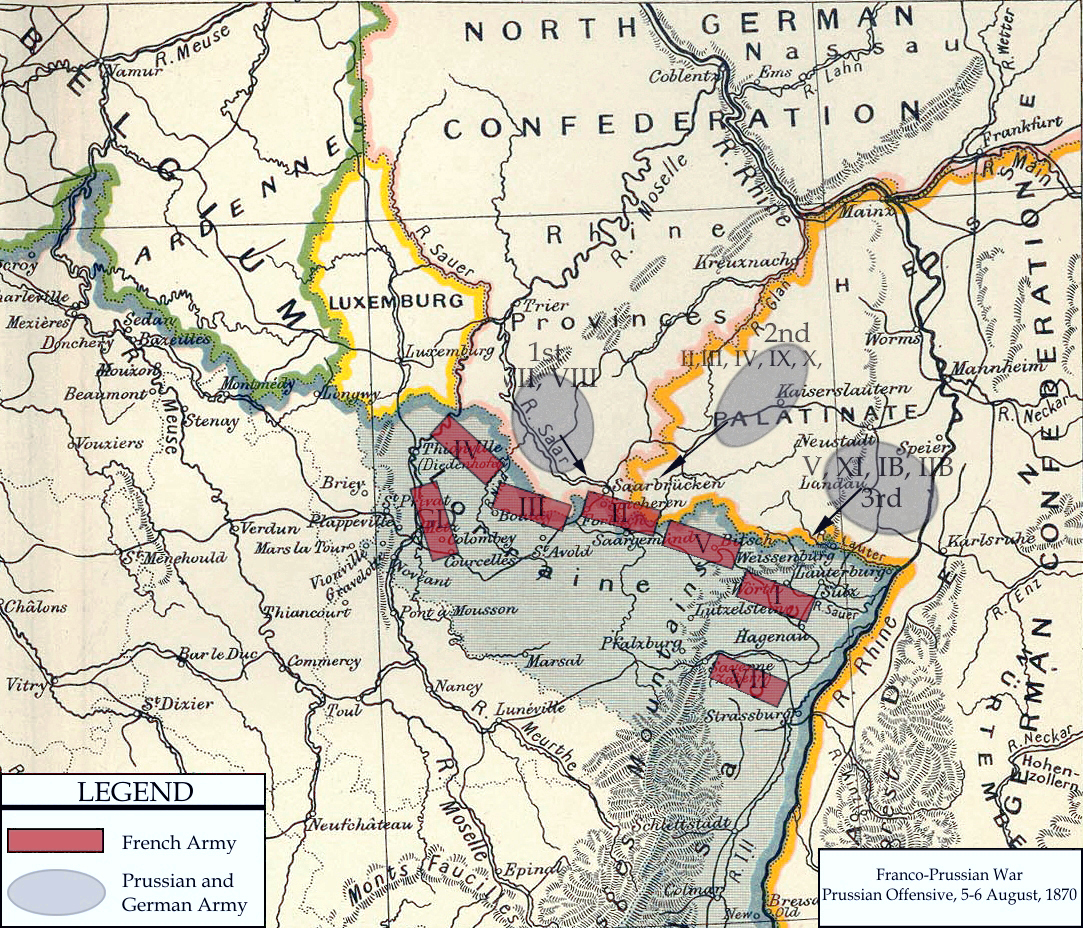
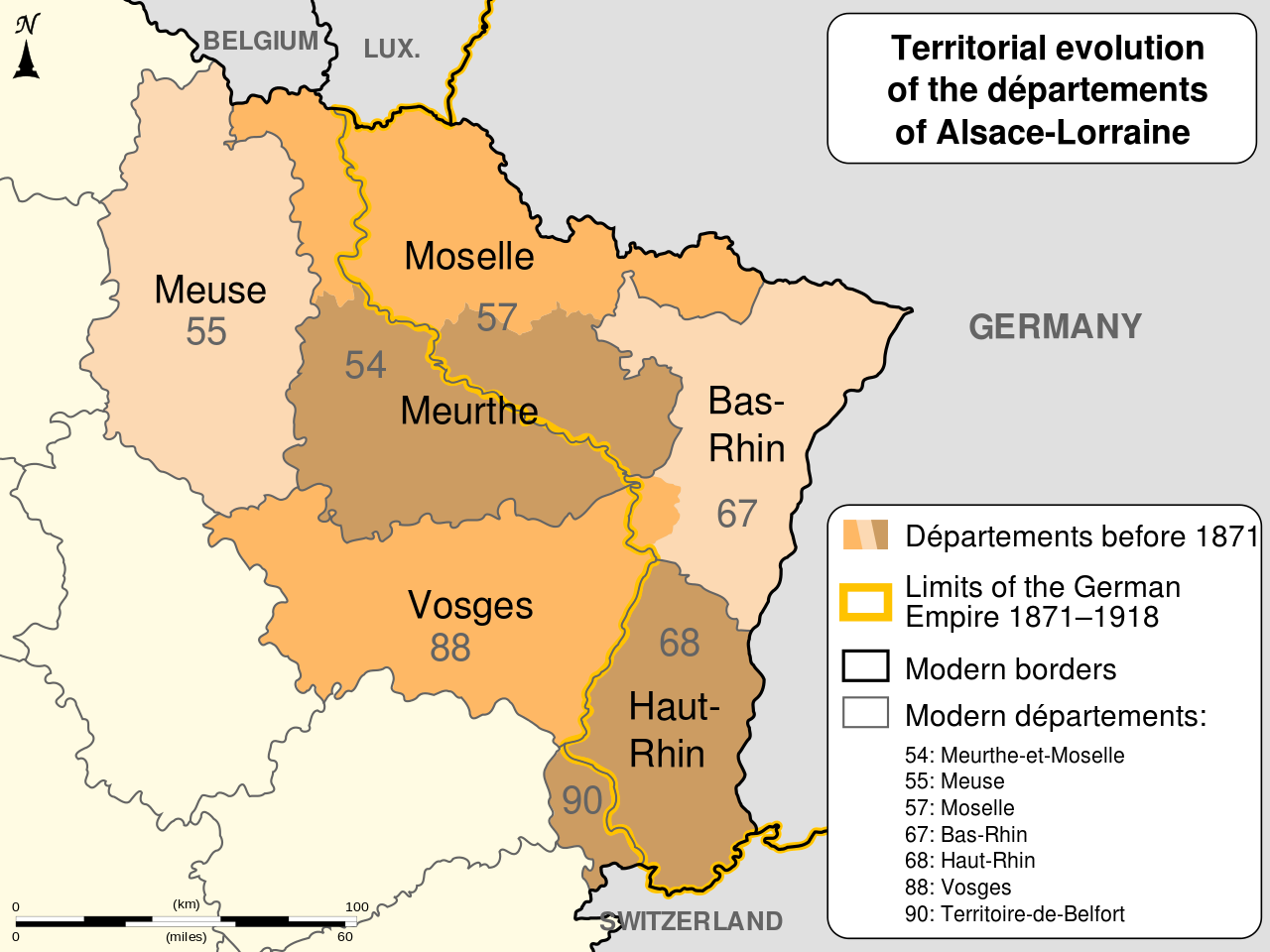
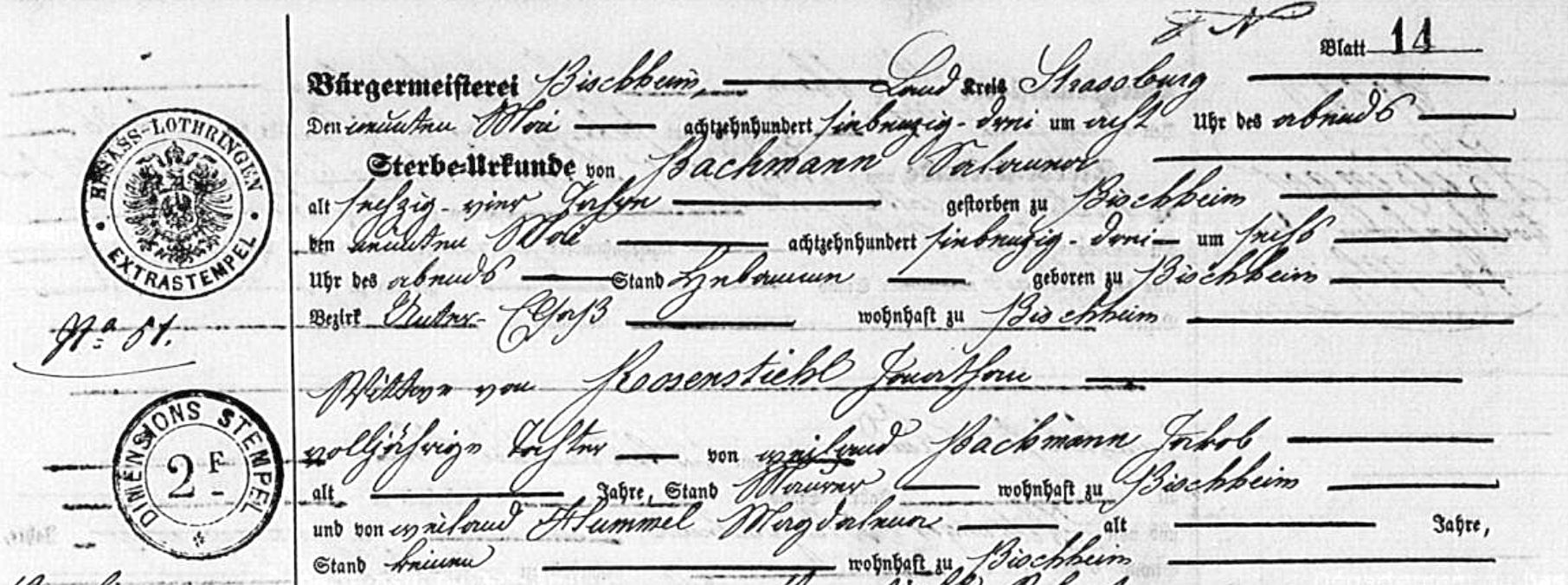
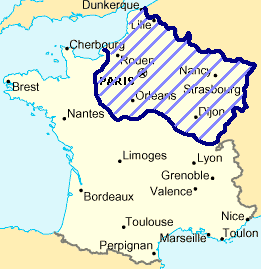
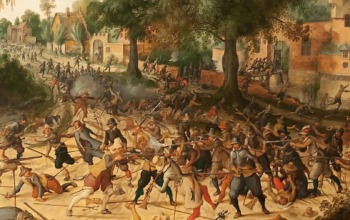
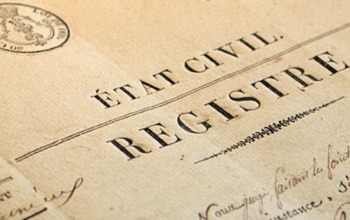
This is a nice summary for people who do not know their French history. Unfortunately, my ancestors were greatly impacted by the Germanic victory. La famille Dell had deep roots in Rouffach, but my great great grandfather choose to leave rather than live under domination. First, he alone went to America to see if it was suitable for him and his large family. He returned and decided instead to move everyone to a small commune in the Territoire de Belfort. Consequently, my grandmother was born there in 1887.
Hello Elise,
I found in the 1841 Goderville census a possible ancestor. Hard to read the hand writing of the census taker, as it is written it appears to be an “f” between her maiden name and married name .
Fouquier “f” or “fe” Fortier. Also difficult to read is in the column for a state title, function, or profession for him, Gisserend or Tisserend maybe. On her line very difficult starts with “la f”
Any thing would help
Thank you
“f” or “fe” in census records is usually an abbreviation for “femme” (meaning wife). It is also usual that, for women who didn’t have an occupation, the column for the profession indicates her relationship to the head of household (so here, it would be “his wife”).
His occupation was probably “tisserand” (textile worker) from what you were able to read.
I believe (but do not know since Prussian military records were destroyed in WWII) that my great great grandfather and his brother were Polish conscripts in the Prussian Army and served in Alsace Lorraine circa 1871. Does anyone know that if I know which village in West Prussia they lived prior to immigration to the USA . Will that information correlate to a specific Prussian Army regiment they might have served in? If I knew their Prussian Army regiment, there might be sacramental (Catholic) records available in a German archive. A long shot I know but I have exhausted all USA and German resources. Any direction to an association (likely in Germany) that knows a great deal about the Franco Prussian War would also be helpful. Thanks so much!
Unfortunately, I don’t know whether you can find this kind of information. I hope you will find an association which can help you (but I don’t know any myself).
I am trying to find military records for my gr grandfather. He was from Ostfriesland, Germany. He was a soldier in the Franco Prussian War. I don’t know where to look for his record for the military. Can someone point me in the right direction?
I am sorry, I do not know German records well enough to help you.
Interesting article about a sad time in France. My great-grandfather, Felix Lehbold, was a veteran of this war from Bas-Rhin. Shortly after the war, he emigrated to the United States. Are there any French military records listing French veterans of this conflict?
Hello, unfortunately, there are no complete listings of veterans of this war. It is possible to find information for each man in their military records. However, those for the Bas-Rhin are not available online.
My 3G-Grandparents were in Amiens, Somme, Picardie, France in 1870. They had 8 children, I believe. After the 1870 Franco-PrussianWar, where in Germany would I go for genealogical records? Would there be in a centralized country place or would there be a smaller place (City, Department, etc.) close to Amiens that would have the records? The name was Armand Delacourt (1796-1871) and his wife, Elisabeth Vasseur (1797). Thank you so very much.
In France, most records are kept on a Department level. So for Amiens, you would have to look at the Archives Départementales de la Somme (here is their website, where you can find online archives: https://archives.somme.fr/) or at the Archives of the city of Amiens (they also have online archives: https://aweb.amiens-metropole.com/4DCGI/Web_RegistresLance/ILUMP6987). Both are physically located in the city of Amiens.
You are so very kind to help me. I thank you. Gayle